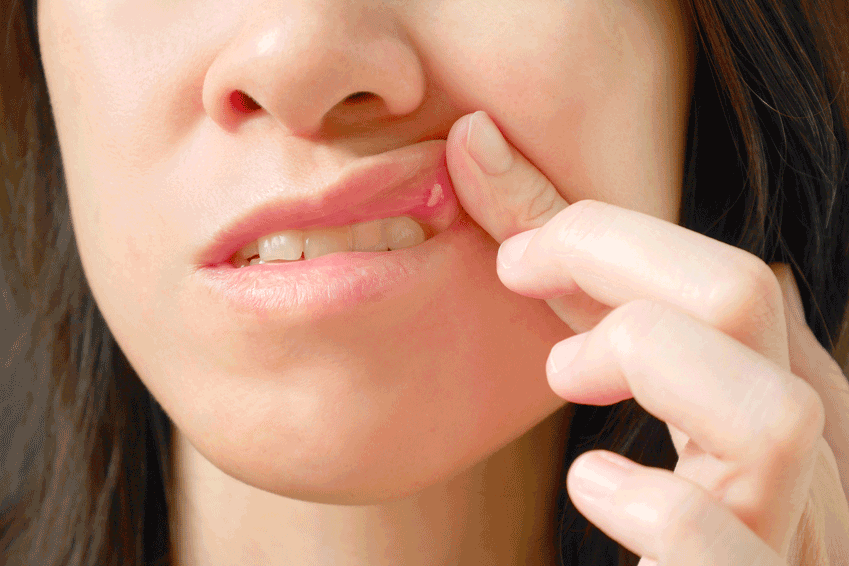When most people think about mouth pain, they’ll think of a toothache caused by cavities and decay.
There’s one other problem, however, that’s at least as typical, and while it might not produce the same levels of discomfort, it can make life miserable for those who suffer severely from it.
What are Mouth Ulcers?
Mouth ulcers are small sores on the inside of your cheeks or lips, on your gums, or on the rear parts of your tongue. They can be visible as white, pink, or dark red spots, are often swollen, and can seem to get bigger or spread if left untreated.

The warm, moist conditions inside your mouth mean these minor scrapes and nicks to the sensitive tissues can take longer to heal than on drier outer skin.
Ulcers are mostly harmless and will typically clear up on their own within a week or two, but they can be painful and make eating, drinking, and even swallowing uncomfortable.
What Causes Them?
Very occasionally, ulcers can be a symptom of a viral infection, particularly in young children. They can also affect people with diabetes or immune system conditions and are more common when someone is run down or stressed. However, mouth ulcers are often the result of minor dental problems such as sharp teeth, poorly fitting dentures, or misaligned teeth which cause accidental biting.
Check out this neat video from SciShow on canker sores. Very informative…
Treatment and Pain Relief
Most ulcers are treatable at home with common over-the-counter medications. Painkiller tablets based on ibuprofen are especially helpful, as they also have an anti-inflammatory effect which reduces the swelling and helps you stop repeatedly biting or scratching the wounds while they heal.
Antibacterial mouthwashes can also be helpful to prevent infection in larger ulcers, and it’s important to keep high standards of oral hygiene even though brushing and flossing may be uncomfortable.
If you’re a regular sufferer, then one of the many mouth sore gels can provide fast relief, but if you find you’re coming to rely on them, it’s best to speak to your dentist who may be able to offer a longer-lasting solution.
What a Dentist Can Do for Ulcers
If you regularly suffer from mouth ulcers, your dentist may be able to help.
Apart from identifying areas where you may be able to improve your oral hygiene routine, they can also spot whether the ulcers have a physical cause.

If you have jagged edges to one or more of your teeth, they can smooth these down, and if you have dentures, they can check that they fit correctly.
They can also refer you to another health professional if they suspect your ulcers are the result of an underlying disease or condition.
Lastly, your dentist can offer prescription medication in severe cases to reduce the pain and swelling while your ulcers heal.
Mouth ulcers may be common, but you don’t have to put up with the pain and inconvenience they bring. If the problem crops up regularly, or if a particular ulcer takes more than a couple of weeks to heal, then consider speaking to your dentist to see what they can do to relieve your discomfort.


















